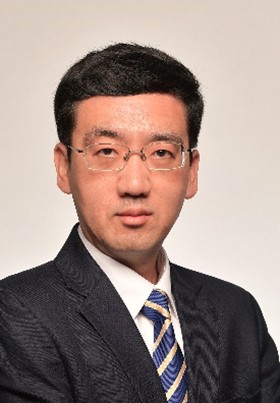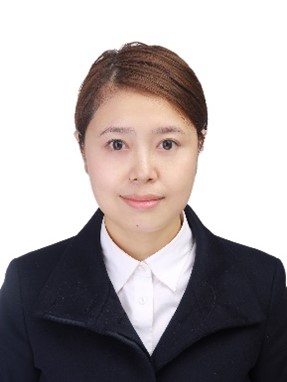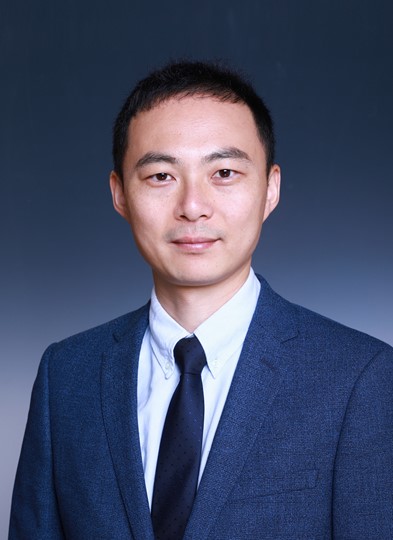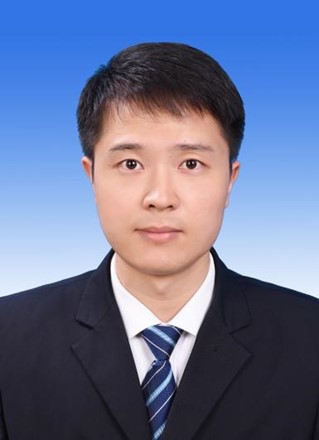Development Forum 3: Key Technologies and Applications of Intelligent System Sensing, Optimization, and Control
7月31日 13:30-15:30 |
July 31, 13:30-15:30 |
云安会堂2楼1会议室 |
Room 1, 2rd Floor, Yunan Auditorium Conference |
Key Technologies and Applications of Intelligent System Sensing, Optimization, and Control 智能系统感知-优化-控制关键技术与应用 Chairs: Hui Zhang (Hunan University, China) Yiming Jiang (Hunan University, China) Hang Zhong (Hunan University, China) |
Panelists: YANG Bo (Shanghai Jiao Tong University, China)
Pu Huayan (Chongqing University, China)
Xiang Li (Tsinghua University, China)
Meng Zhang (Xi’an Jiaotong University, China)
Zhijie LIU (University of Science and Technology Beijing, China)
Abstract: The key technologies and applications of intelligent system sensing, optimization, and control have gain significant interest from researchers in the fields of artificial intelligence and engineering. Numerous advancements have been made in the analysis and implementation of these technologies, yet fundamental challenges remain. These include issues related to the integration of intelligent materials and structures, the development of adaptive control strategies, and the optimization of system performance in dynamic environments. In this forum, five experts have been invited to present their latest research findings on topics such as intelligent sensing techniques, optimization algorithms, and advanced control methods. Their talks aim to share the latest progress and insights with the interested audience, fostering a deeper understanding and encouraging further innovation in the related domain.
 Speaker: YANG Bo, Shanghai Jiao Tong University, China
Speaker: YANG Bo, Shanghai Jiao Tong University, China
Title: Design and Optimization of the IIoT Platform towards Flexible Manufacturing
Abstract: To fulfil flexible manufacturing industrial software needs to quickly redistribute and adjust production processes according to changes of orders, which has higher requirements for flexibility and scalability of industrial software. Traditional monolithic service architectures are difficult to meet the requirements of smart manufacturing. Through the microservice architecture, a complete service can be split into multiple loosely coupled microservices. Different microservices are logically independent and have a high degree of flexibility, scalability, and fault tolerance, which can well adapt to the requirements of smart manufacturing. This talk will present how to design an industrial internet of things (IIoT) platform with limited computation and communication resources to support fast response. Moreover, the talk will introduce how to migrate microservice to adapt to the change in production with less interruption. Some examples are given to demonstrate its feasibility and effectiveness.
YANG Bo is a full professor of Shanghai Jiao Tong University, the head of the Department of Automation, and the vice president of Shanghai Automation Society. His research areas include energy Internet, industrial Internet of Things, etc. He has published more than 200 academic papers and one monograph. He is on the editorial board of four journals including IEEE TNSE. He is the PI of several key projects, including the National Science Fund for Distinguished Young Scholars, key projects from NSFC, Key Research and Development projects of the Ministry of Science and Technology. His research achievements have won the first prize of the Natural Science Award of the Ministry of Education and the first prize of the Shanghai Technology Invention Award.
 Speaker: Pu Huayan,Chongqing University,China
Speaker: Pu Huayan,Chongqing University,China
Title: Key Technology of Vibration Reduction Based on Intelligent Materials-Structures-Control
Abstract: The suppression of complex vibrations is fundamental to ensuring the dynamic performance of advanced equipment. Addressing the issue of performance limitations due to low-frequency and strong harmonic vibrations, the speaker integrates mechanization, informatization, and intelligence into key vibration reduction components. They innovatively design lattice rheological intelligent materials and structures, breakthrough methods for intelligent structural stiffness regulation, and variable-frequency damping generation. They also overcome the challenge of developing intelligent frequency-following control methods for strong harmonic vibrations with high real-time responsiveness and strong robustness. The vibration reduction device achieves an inherent frequency of less than 2Hz, an attenuation rate of nearly -40dB/dec in the high-frequency range (theoretical limit), and complete decoupling among six vibration modes. These results have been successfully applied to various types of high-end equipment.
Pu Huayan is a professor at the National Key Laboratory of Mechanical Transmission for High-End Equipment at Chongqing University. She is a recipient of the National Science Fund for Distinguished Young Scholars and the Shanghai Youth Science and Technology Outstanding Contribution Award, and she has been honored as a Shanghai March 8th Red Banner Pacesetter. Professor Pu has long been engaged in the research of service robots under complex working conditions. She has twice won the second prize of the National Technological Invention Award and, as the primary contributor, has received the first prize of the Shanghai Technological Invention Award, the Chongqing Science and Technology Progress Award, and the first prize of the China Automation Society Science and Technology Progress Award.
 Speaker: Xiang Li, Tsinghua University, China
Speaker: Xiang Li, Tsinghua University, China
Title: Optimized and Personalized Human-In-the-Loop Adaptation Framework for Exoskeleton Systems
Abstract: One of the typical purposes of using lower-limb exoskeleton robots is to provide assistance to the wearer by supporting their weight and augmenting their physical capabilities according to a given task and human motion intentions. The generalizability of robots across different wearers in multiple tasks is important to ensure that the robot can provide correct and effective assistance in actual implementation. However, most lower-limb exoskeleton robots exhibit only limited generalizability. Therefore, this talk proposes a human-in-the-loop learning and adaptation framework for exoskeleton robots to improve their performance in various tasks and for different wearers. To suit different wearers, an individualized walking trajectory is generated online using dynamic movement primitives and Bayes optimization. To accommodate various tasks, a task translator is constructed using a neural network to generalize a trajectory to more complex scenarios. These generalization techniques are integrated into a unified variable impedance model, which regulates the exoskeleton to provide assistance while ensuring safety. The proposed framework is easy to implement, because it requires proprioceptive sensors only to perform and deploy data-efficient learning schemes. This makes the exoskeleton practical for deployment in complex scenarios, accommodating different walking patterns, habits, tasks, and conflicts.
Xiang Li is an Associate Professor in the Department of Automation at Tsinghua University. His research interests include robotic dexterous manipulation, human-robot collaboration, and multi-agent systems. He has published a monograph distributed by Springer and authored over 100 high-level journal and conference papers in the field of robotics, including publications in IJRR, TRO, Automatica, TAC, ICRA, and IROS. He has been the Associate Editor of IEEE Robotics and Automation Letters since 2022 and the Associate Editor of IEEE Transactions on Automation Science and Engineering since 2023. He was the Associate Editor of IEEE Robotics & Automation Magazine from 2019 to 2021 and the Associate Editor of ICRA in 2019, 2020, 2021, and 2023. He received the Highly Commended Paper Award in 2013 IFToMM, the Best Paper in Robotic Control in 2017 ICAR, the Best Application Paper Finalist in 2017 IROS, the T. J. Tarn Best Paper in Robotics in 2018 IEEE ROBIO, the T. J. Tarn Best Paper Finalist in 2023 IEEE ROBIO, the Best Paper Award in 2023 ICRA DOM Workshop, and the Best Medical Robotics Paper Finalist in 2024 ICRA. He led the XL team, won the first prize in the 2024 ICRA Robotic Grasping and Manipulation Challenge (the track of in-hand manipulation), and also received the “Most Elegant Solution” award across all tracks. He is the Program Chair of the 2023 IEEE International Conference on Real-time Computing and Robotics.
 Speaker: Meng Zhang, Xi’an Jiaotong University, China
Speaker: Meng Zhang, Xi’an Jiaotong University, China
Title: Understanding and Rethinking LiDAR-Inertial Odometry
Abstract: LiDAR-Inertial Odometry (LIO) has witnessed numerous novel datasets and approaches in recent years. Despite approaches’ progress and usefulness, few efforts have been devoted to thorough analysis regarding their non-determinism. Specifically, non-determinism refers to the property where a given input may produce different outputs, and the presence of unpredictable outcomes may distract and complicate the evaluation of a LIO algorithm's strengths and weaknesses. In this talk, we delve into the non-deterministic behavior of current state-of-the-art algorithms such as DLIO and FAST-LIO2, examining their design and implementation in detail. Then, solutions are provided to enable these algorithms to be deterministic. In addition, we propose improvements in submap building and the state update component of the LIO framework, resulting in an accurate and deterministic baseline: ADD-LIO. Extensive experiments have been performed on three challenging datasets, including SubT-MRS datasets, Newer College datasets and its extensions, covering a total trajectory length of approximately 17000 meters and span about 6 hours of data. The experimental results demonstrate that the proposed ADD-LIO consistently achieves high accuracy and determinism. To benefit the community, ADD-LIO and the deterministic version of DLIO and FAST-LIO2 are open-sourced.
Meng Zhang is a professor and doctoral supervisor at Xi'an Jiaotong University, a young Changjiang Scholar from the Ministry of Education. Meng Zhang obtained his Ph.D degree from the school of control science and engineering of zhejiang university. Meng Zhang has received honors such as the First Prize for Excellent Achievements in Science and Technology Research at Shaanxi Higher Education Institutions, the First Prize for Natural Science at the Chinese Association of Automation, the Outstanding Youth Award for Artificial Intelligence of Wu Wenjun. Meng Zhang has published more than 40 papers in journals such as Automatica, IEEE TAC Full Paper, IEEE TASE, etc. Meng Zhang serves as an associate editor of IEEE Transactions on Automation Science and Engineering and the chairman of IEEE IESONCON and other conference industrial forums. Meng Zhang’s research directions include intelligent control and optimization with applications to robotics and smart grids.

Speaker: Zhijie LIU, University of Science and Technology Beijing, China
Title: System Design and Control Technology of Micro Bionic Flapping-wing aircraft
Abstract: Micro bionic flapping-wing aircraft hold significant value in various mission scenarios, such as reconnaissance and combat operations in complex and narrow spaces, disaster detection, environmental monitoring, and exploration positioning. However, the development of these aircraft is currently constrained by issues such as large size, low lift-to-weight ratio, poor maneuverability, and insufficient intelligence. In this report, we present our team's research work in the design and control of micro bionic flapping-wing aircraft.
Zhijie Liu received B.Sc. degree from China University of Mining and Technology Beijing, Beijing, China in 2014, and the Ph.D degree from Beihang University, Beijing, China in 2019. In 2017, he was a Research Assistant with the Department of Electrical Engineering, University of Notre Dame, for twelve months. He is currently a Professor with School of Intelligence Science and Technology, University of Science and Technology Beijing (USTB), Beijing, China. He serves as youth editorial board member of Journal of Bionic Engineering, IEEE/CAA Journal of Automatica Sinica and Chinese Journal of Engineering. His research interests include adaptive control, modeling and vibration control for flexible structures, and distributed parameter system.